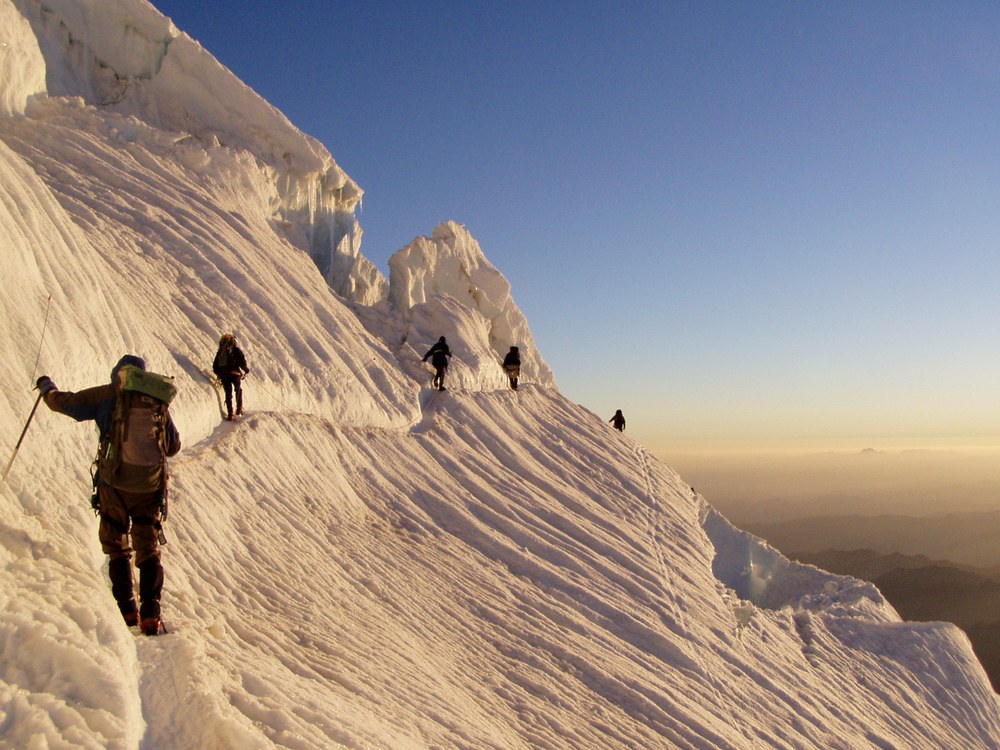
In our Mountaineers climbing and alpine scrambling courses, an essential skill we are always trying to instill in our students is what I call “mountaineering judgement.” To be safe outdoors and in the mountains, one always needs to be aware of - and alert to - risk factors, changing conditions, and issues with other party members. Because of this, courses in activities like climbing, scrambling, and kayaking could just as easily be called risk management courses. Everything students learn in these courses reduces risk and makes the activity safer.
This experience with mountaineering judgement can and should be applied to COVID-19.
The mountains and the virus have similarities and differences. The mountains are huge, the virus is tiny; both have the ability to inflict inconvenience, injury, and death. The mountains and the rivers and seas have many risks, but those risks are well-understood by the multitudes who have experienced and learned the ways of the outdoors. The virus is new and its risks - while many and serious - are still not fully understood; there is conflicting information and advice out there, and there is no cure or vaccine.
But, both the mountains and the virus are utterly indifferent to their effect on us humans. They don’t care if we are hungry, tired, cold, thirsty, or scared. They don’t care if we are bored, lonely, unemployed, broke, starving, depressed, or in need of child-care or a haircut.
The risk to ourselves only increases if we believe our complaints, concerns, reasons, excuses, and rationales have any relevance to the risks that are hard-wired into the mountains, the seas, or the virus. And each of us will suffer the consequences if we do not deal with these risks on the terms dictated by those forces of nature.
If you have taken Mountaineers courses and participated in club activities, you have undoubtedly been exposed to a great deal of expert knowledge in your course materials and expert experience from your leaders and instructors. You can use the same knowledge in dealing with COVID-19.
Seek out information and advice from select sources that you trust. The Mountaineers has published detailed guidance for participants and leaders to follow during club trips. But, as in the mountains, you should also do your own research to determine your personal risk tolerance for participation in group activities. You need to use your own mountaineering judgement to be aware, be alert, be careful, and be proactive.
For example, we have all heard the advice to keep 6 feet apart when social distancing. I, as a person at higher risk of serious infection, am not comfortable with the idea of only 6 feet when I think about how far smoke and smells carry. As a result, my personal comfort zone is to try to stay 20-30 feet away when hiking and biking unmasked, and I only do those activities in places where it is likely that I can do that.
It’s in times like these that we must understand and manage risks for both ourselves and our community. Much like being on a rope team, your decisions and risk management skills impact those around you. The results can be disastrous or successful beyond our best hopes.
We are gifted with judgement, reason, and logic - powerful tools in the face of any adversary or situation. I urge you to use these tools to protect yourself and your team from a virus whose risks are many, serious, and not fully understood.
 Dale Flynn
Dale Flynn